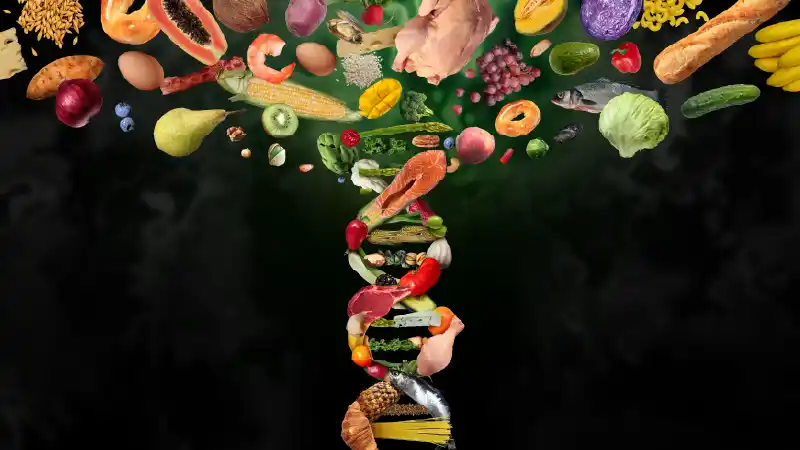Health Impacts of Genetically Modified Foods
Genetically Modified Foods Safety & its Impact on Health
With biotechnology in agriculture transforming the way we produce and eat food, concerns regarding health and safety still remain. Although numerous high-profile organizations and research studies suggest that genetically modified foods are safe and sustainable, there are some who believe that they may be harmful to health and the environment.
Let's uncover the benefits, and drawbacks of genetically modified foods, to help individuals make informed nutritional choices.
What are Genetically Modified Foods?
Genetically modified foods (GM foods) are produced from organisms—like plants, animals, or microorganisms—whose genetic makeup (DNA) has been changed by means of biotechnology.
Here is a detailed overview:
- This procedure, also referred to as genetic engineering or recombinant DNA technology, entails altering an organism's genes in a manner not seen in nature by traditional breeding or mating.
- Genetic modification is distinct from conventional breeding as it involves the addition of one or several targeted genes rather than combining numerousgenes.
- The resulting product is a genetically modified organism (GMO) that is grown and tested.
- If it performs well, the GMO can be employed to produce food.
- GM foods either contain GMOs or are products of them, and they intended to increase crop production, reduce chemical use, or enhance food quality.
What are the Different Types of Genetically Modified Foods?
Even though GMO foods are safe to consume, some people still try to avoid them. Some notable GMO foods include the following:
- Sugar beet
- Corn
- Soybean
- Canola
- Summer squash
- Potato
- Papaya
- Apple
- Alfalfa
- Pink pineapple
What are the Benefits of Genetically Modified Foods?
Genetically modified foods bring a variety of advantages, including improving global food security, providing better nutrition, and easing the burden on the environment. Some of its benefits include:
- Stable Food Supply: GMO crops provide more predictable and stable yields, hence a more reliable food supply, lowering food shortages and food deserts globally.
- Better Nutrition: Genetic alterations can improve the nutritional value of crops. For instance, Vitamin A-enriched GMO rice has aided in the fight against vitamin deficiencies around the world, particularly in the developing world.
- Longer Shelf Life: GMOs can naturally remain fresh longer without the use of preservatives, minimizing food waste and decreasing health hazards from artificial additives.
- Medical and Pharmaceutical Benefits: By "pharming," some GMO crops are able to create vaccines, proteins, and other medicines. This process might make healthcare cheaper and transform the way drugs are delivered, possibly eliminating injections in favor of nutrient-dense food.
- Improved Appearance and Flavor: Genetic alteration allows for more attractive food through the enhancement of color and texture. The more vivid and colorful the foods are, the more likely they are to be considered flavorful and healthy.
- Improved Transportation and Worldwide Access: The increased durability and longer shelf life of GMO foods facilitate easy transportation over large distances, enhancing food availability in remote areas and reducing hunger.
- Less Use of Herbicides and Pesticides: GMO crops tend to be resistant to pests and diseases, which reduces the use of chemical applications. This is favorable to the environment and ensures the soil remains healthy and nutrient-filled in the long term.
Drawbacks of Genetically Modified Foods
Despite the plethora of benefits, GMO foods are accompanied by issues of health risks, legal complications, and environmental effects. Some of its drawbacks include:
- Antibiotic Resistance: Certain GMO crops carry antibiotic-resistant genes, which have the potential to make antibiotics less effective in humans by promoting resistant bacteria.
- Farmers' Legal Liability: Cross-pollination between GMO and non-GMO plants can result in inadvertent patent infringement. Thus, even farmers who are not involved in growing GMO plants can face legal action.
- Unintended Genetic Transfer: Genes from GMO plants can spread to other plants, including weeds, and create herbicide-resistant superweeds and upset ecosystems.
- Restricted Research: The GMO market is controlled by a handful of large companies that habitually restrict independent examination of their seeds and produce, restricting transparency and scientific testing.
- Risk Exposure to Potential Carcinogen: Certain debatable studies imply a probable connection between GMO crops and enhanced risk of cancer, particularly when tolerant of certain herbicides. Although evidence is still incomplete, it evokes a public health alarm.
- Enhanced Food Allergy Risk: Mutated proteins in GMO foods can cause allergic reactions in certain people. The increase in food allergies among children since 1999 has led to suspicions about the involvement of genetic alteration in this phenomenon.
Genetically modified foods are both potentially beneficial and risky. While agricultural biotechnology provides solutions to hunger and climate change, the potential impact of GMOs on health requires continuous examination.
To navigate this complex environment, it is crucial to have informed consumer decision-making, transparent research, and responsible innovation. This way, it will be possible to strike a balance between science and caution to achieve a food system that is sustainable, safe, and equitable for all.
HELP CENTRE
Confused? We’ve got the answers
We’re Star Health. We offer the coverage that’s designed to help keep you healthy. It's the care that comes to you, and stays with you.
People Also Search For
Health Insurance Coverage for pre-existing medical conditions is subject to underwriting review and may involve additional requirements, loadings, or exclusions. Please disclose your medical history in the proposal form for a personalised assessment.
Information on this Health Information page is for educational purposes and not medical advice. Consult a healthcare professional for any health issues and rely on their guidance for diagnosis and treatment. T & C apply. For further detailed information or inquiries, feel free to reach out via email at marketing.d2c@starhealth.in
